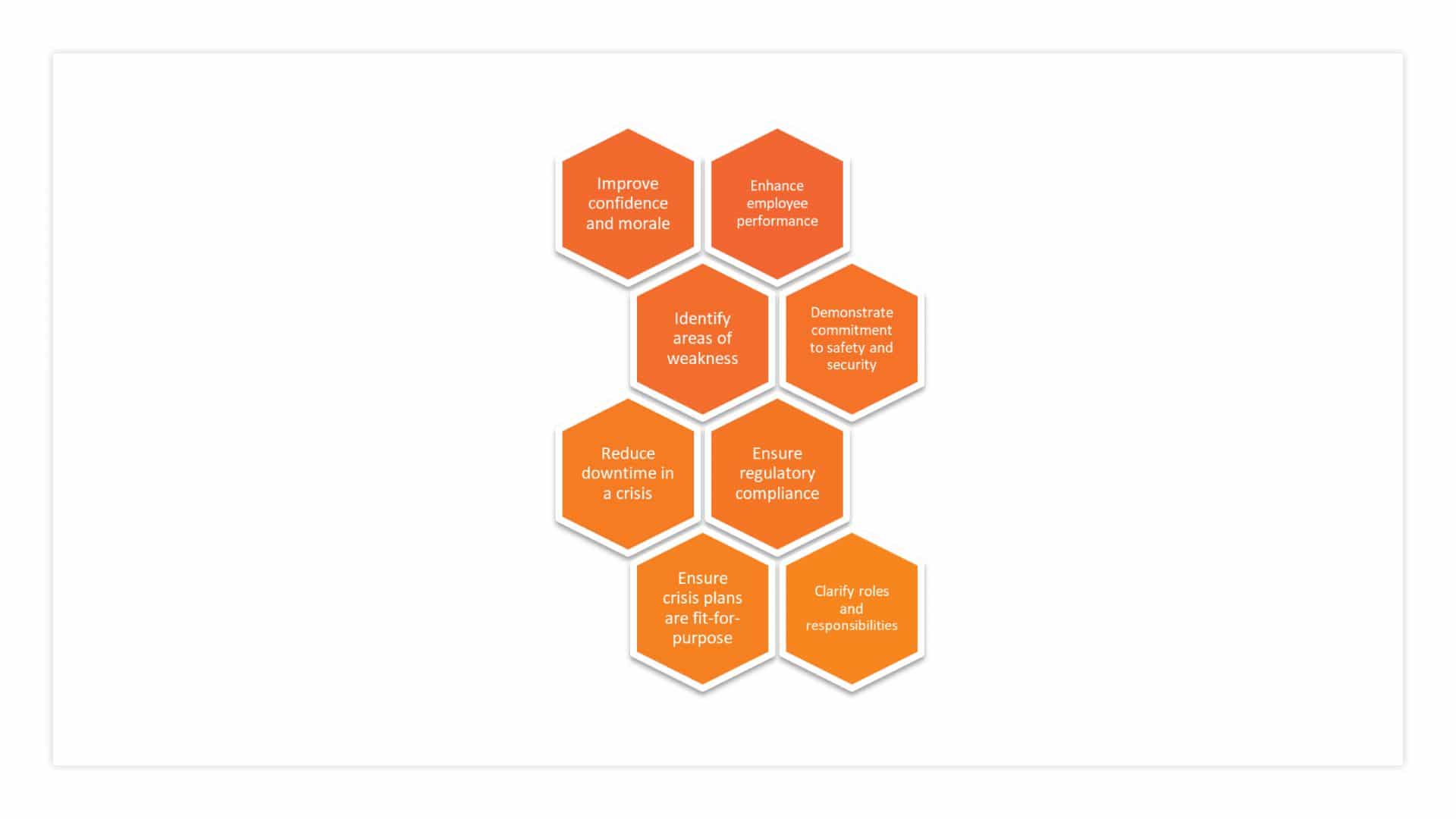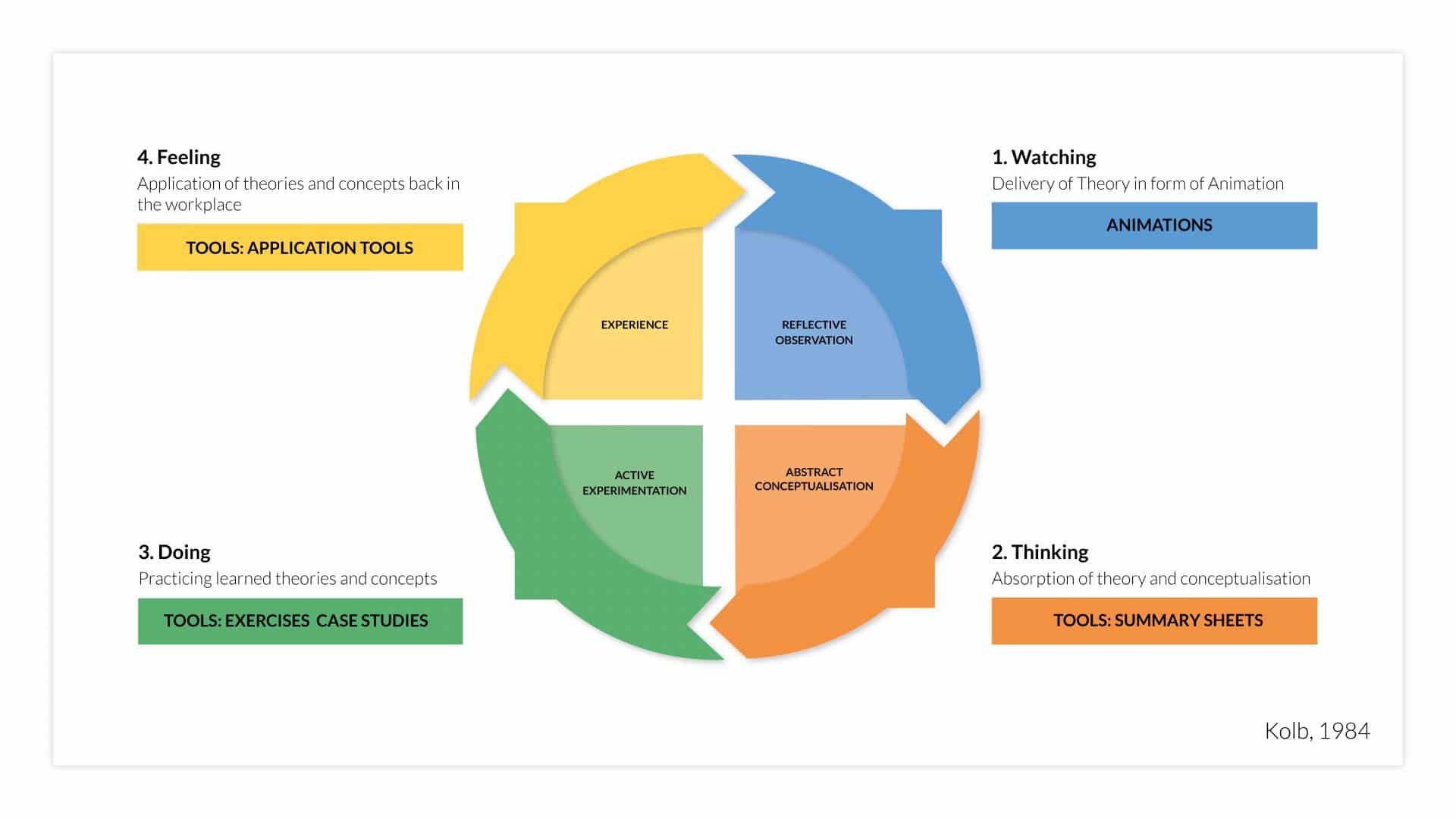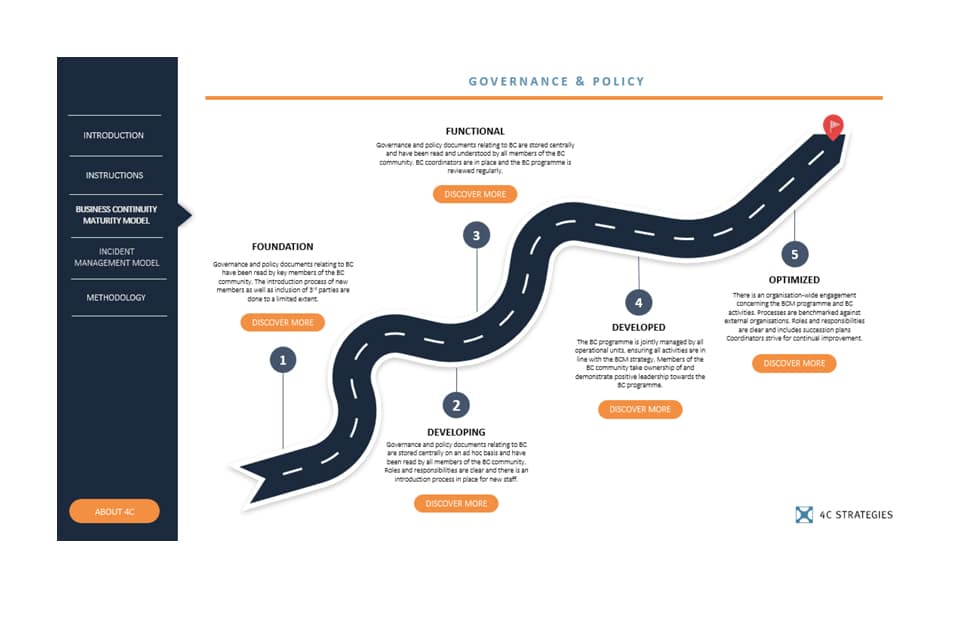This website uses cookies so that we can provide you with the best user experience possible. Cookie information is stored in your browser and performs functions such as recognising you when you return to our website and helping our team to understand which sections of the website you find most interesting and useful.
Training Programs – Capability Development – Maturity Models & Benchmarking Analysis

Systematic training is one of the fundamentals of building organisational resilience. This extends to senior leadership, middle management, and crisis response teams and individuals, with the goal of meeting a common baseline of performance or certification standards at the strategic, tactical and operational levels.
At 4C Strategies we have devised a number of industry-leading crisis management training solutions for different sectors, which are then adapted to a particular organisation’s requirements and resources. They cover a range of different risks and crisis scenarios, including cyber security, supply chain, terrorism, pandemics, natural disasters, data breaches, and IT outages.
Why Train for a Crisis?

Our Training Methodology
At 4C Strategies, our approach to crisis management training is grounded in experiential learning, where participants can take away a new skill or way of thinking from our sessions. To move away from the traditional presentation style, we heavily involve the learners in the session. To that end, we have adapted the Kolb (1984) Methodology for experiential learning and we incorporate this into our training sessions.

We have designed our training packages to provide some information and knowledge, while focusing heavily on drawing ideas and experiences form the learners, matching this with our trainer’s knowledge, and then experimenting during some practical activity such as an exercise. This training cycle is typically concluded with some reflection and debriefing about what we have learnt.
Our Training Solutions
Below are some examples of the most common training solutions we at 4C deliver. We like to work with our clients to customize packages for each particular organisation and so it is quite likely that we will select certain elements from the different examples below to meet your requirements and the learning outcomes you are looking for. If the subject area does not appear below, then our expert consultants will design the training package based on a detailed training needs analysis.
Evaluation and Debriefing
Purpose
To provide participants with the appropriate skills and knowledge to perform the role of an exercise or post-incident evaluator
Target Audience
This training package is primarily designed for business resilience professionals, emergency management practitioners and members of CMT who would have a role in evaluating and debriefing exercises and incidents.
Learning Outcomes:
Knowledge and Understanding
By the end of this training participants will be able to:
- Explain the role of the observer/evaluator
- Understand the characteristics of a good observer/evaluator
- Explain and demonstrate what makes a good observation
- Identify the types of de-briefs available and their use
- Explain the theory behind de-briefing and its use to continually improve
- Explain and demonstrate the skills required during de-briefing
Skills
- Write effective observations for the evaluation of incidents and exercises.
- Conduct effective debriefs
- Develop active listening skills
- Develop effective questioning skills
Maintaining Incident Records and Logs
Purpose
Incident records and logs are vital in the current operational landscape as the vast majority of organisations are accountable to others for their actions, whether it is the board or a regulator. Incident records and logs are the backbone of defensible decision making. All organisations will need to have staff trained not only in the awareness and importance of incident records but also in the skill of creating and maintaining incident logs. This course does not just look at the traditional log but goes further into understanding incident reporting in the digital world and how electronic solutions can support the process.
Target Audience
This training package is primarily designed for business resilience professionals, emergency management practitioners and members of CMT who would have a role in evaluating and debriefing exercises and incidents.
Learning Outcomes:
Knowledge and Understanding
- Understand the need for accurate record keeping during incidents
- Be aware of the different types of incident records
- Have a good understanding of why logging is important
- Be aware of what to log and what not to log.
- Have practiced taking minutes for a crisis meeting
- Understand how to log information electronically and how does this differ from paper logging
Skills
Completion of this course will ensure participants will be able to:
- Create and maintain logs in different situations including individual logging, logging for senior managers and logging meetings
- Record decisions and contribute to ‘defensible decision making’
- Undertake post incident actions to secure information
Leading Crisis Management Teams
Purpose
To develop the operating capabilities and understanding of crisis management by leaders of Crisis Management Teams (CMTs).
Target Audience
This training package is designed primarily for Crisis Managers, Incident Commanders, CMT leaders, Business Continuity Managers, Business Resilience Managers, and Emergency Management professionals.
Learning Outcomes:
Knowledge and Understanding
- To enable a good understanding of the importance of the right ‘information’ in gaining situational awareness.
- Develop the crisis leader’s practical application of the crisis management Framework and process
- Enhance the capability of the crisis leader to establish a clear and unambiguous view of the situation
- Enhance the crisis leader’s decision making and direction
- Increase understanding of the role that communications has in effective crisis management
- To highlight the importance of note/minute taking and the consequences of incorrect information gathering, especially in the context of dealing with auditors/regulators
Skills
Completion of this course will ensure participants will be able to:
- Use the right information to build situational awareness
- Make accurate records during incidents including incident logs
- Use decision making tools to support effective decision making
Principles of Effective Crisis Management
Purpose:
To develop the operating capabilities and understanding of crisis management by members of the Crisis Managements Teams (CMTs), including operation managers and Crisis Support Staff who will directly support the CMTs.
Target Audience:
This training package is designed primarily for CMT team members at any level (strategic, tactical, operational), including operation managers supporting crisis management from IT, security and fire management, health safety and environment (HSE), and other departments
Learning Outcomes:
Knowledge and Understanding
- To enhance the understanding and capability of the participants operating in support of the wider crisis response
- To provide an overview of principles for effective crisis management
- To provide an overview of the roles and responsibilities required for an effective crisis response
- To understand the effects of managing a crisis on individuals and teams
- To increase understanding of the role that communications has in effective crisis management
- To enable a good understanding of the importance of the right ‘information’ in gaining situational awareness.
Skills
Completion of this course will ensure participants will be able to:
- Use the right information to build situational awareness
- Write effective minutes of meetings to inform decision making,
- Make accurate records during incidents including incident logs
- Deliver effective briefings in order to share information
- Use decision making tools to support effective decision making
Strategic Crisis Management Team (CMT) Training
Purpose
To develop the operating capabilities and understanding of strategic crisis management by the CMT who will directly lead the overall crisis response.
Learning Outcomes:
Knowledge and Understanding
- To enable a good understanding of the importance of ‘effective’ incident and crisis management.
- Develop the CMT’s practical application of the incident management framework and process
- Enhance the capability of the CMT to establish a clear and strategic view of the situation
- Enhance the CMT’s decision making and direction
Skills
Completion of this course will ensure participants will be able to:
- Use the right information to build situational awareness
- Use decision making tools to support effective decision making

Want to learn more?
Discover how you can build your crisis management capability with our services and Exonaut® software solutions.


